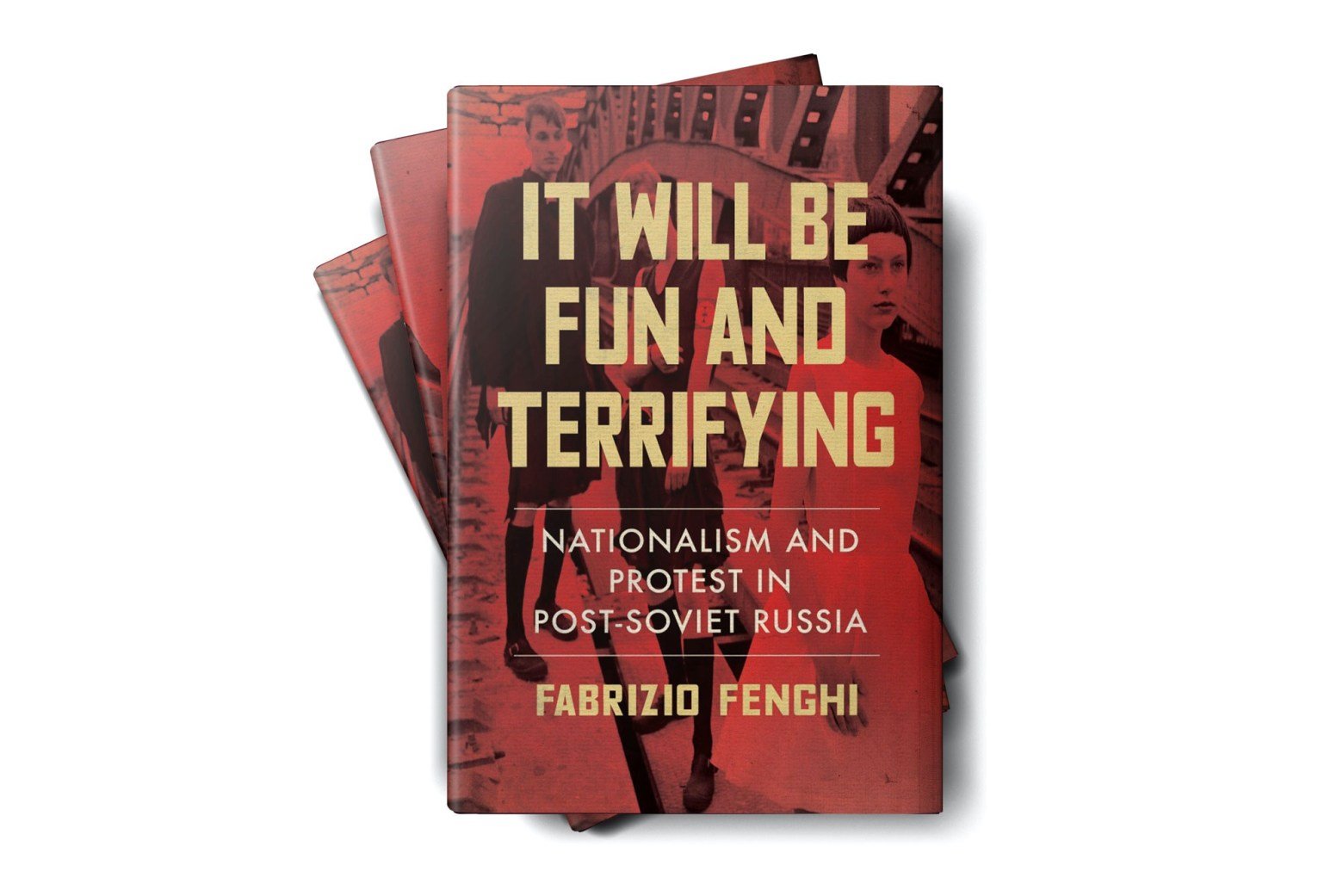Associate Professor of Slavic Studies, Brown University
Fabrizio Fenghi is an associate professor of Slavic Studies at Brown University specializing in contemporary Russian culture and politics, with a focus on the relationship between art and literature and the shaping of post-Soviet public culture. Fenghi received his Ph.D. in Slavic Languages and Literatures from Yale in 2016. He grew up in Milan, Italy, where he received a B.A. and an M.A. in Foreign Languages and Literatures from the University of Milan, and spent several years of study and research in Moscow, Russia, where he was affiliated with RGGU (Russian State University for the Humanities) and MGU (Moscow State University).
Fenghi’s first book, It Will Be Fun and Terrifying: Nationalism and Protest in Post-Soviet Russia (University of Wisconsin Press: 2020), studies the ways in which the aesthetics and culture of Eduard Limonov’s National Bolshevik Party, a radical countercultural movement, have influenced the development of Russian protest culture and the formation of state ideology during the Putin era. The project draws on textual analysis and ethnographic material, including over forty interviews with contemporary Russian intellectuals and political activists. His current project, tentatively entitled The Revolution Will Be Fictionalized: Postmodern Politics and Radical Literature in Putin’s Russia, explores the politicization of literature and literary debates that occurred in the past two decades, during a period otherwise marked by a fundamental depoliticization of society.
Fenghi has also written articles on postmodern imperialist fiction, the Russian and French new waves of cinema in the 1960s, violence and national identity in post-Soviet media, and Silver Age theater. In addition, he is a co-author and co-curator on the NEH-funded digital humanities project “The Post-Soviet Public Sphere,” an online multimedia archive and open-access edited collection of essays on the “long Russian 1990s,” from perestroika to Putin’s rise to power in the early 2000s.
At Brown, Fenghi teaches courses on twentieth- and twenty-first-century Russian culture, literature, and politics, gender and sexuality, nationalism and national identity.
“Rise, you branded by a curse!” Aleksandr Lebedev-Frontov, 1995 ca.
It will be Fun and Terrifying:
Nationalism and Protest in Post-Soviet Russia
University of Wisconsin Press, 2020, Paperback 2021
The National Bolshevik Party, founded in the mid-1990s by Eduard Limonov and Aleksandr Dugin, began as an attempt to combine radically different ideologies. In the years that followed, Limonov, Dugin, and the movements they led underwent dramatic shifts. The two leaders eventually became political adversaries, with Dugin and his organizations strongly supporting Putin’s regime while Limonov and his groups became part of the liberal opposition.
To illuminate the role of these right-wing ideas in contemporary Russian society, Fabrizio Fenghi examines the public pronouncements and aesthetics of this influential movement. He analyzes a diverse range of media, including novels, art exhibitions, performances, seminars, punk rock concerts, and even protest actions. His interviews with key figures reveal an attempt to create an alternative intellectual class, or a “counter-intelligensia.” This volume shows how certain forms of art can transform into political action through the creation of new languages, institutions, and modes of collective participation.

